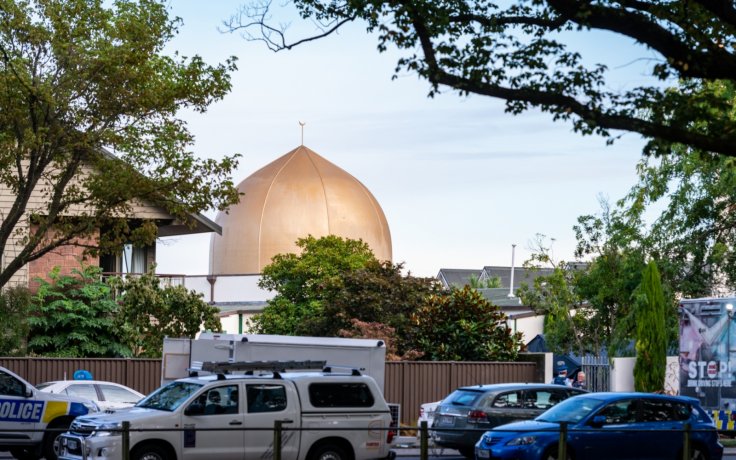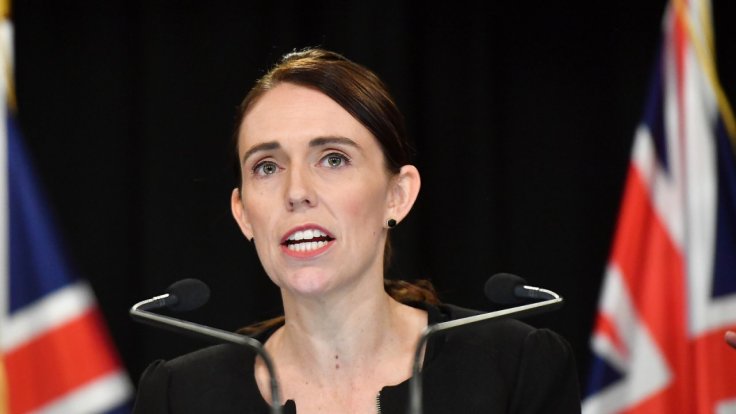New Zealand Prime Minister Jacinda Ardern said on Monday she would announce new gun laws within days, after 50 people were killed in mass shootings at two mosques in the city of Christchurch.
Australian Brenton Tarrant, 28, a suspected white supremacist, was charged with murder on Saturday. Tarrant was remanded without a plea and is due back in court on April 5 where police said he was likely to face more charges.
"Within 10 days of this horrific act of terrorism we will have announced reforms which will, I believe, make our community safer," Ardern said at news conference after her cabinet reached in principle decisions on gun reform laws in the wake of New Zealand's worst ever mass shooting.
In addition to the 50 killed, dozens were wounded at two mosques in the South Island city during Friday prayers.
The owner of a New Zealand gun store the man charged with murder in the mosque shootings had bought firearms and ammunition online from the store, but it did not sell him the high-powered weapon used in the massacre.
Gun City owner David Tipple said the alleged gunman bought four weapons and ammunition between December 2017 and March 2018.
"The MSSA, military-style automatic, reportedly used by the alleged gunman was not purchased from Gun City. Gun City did not sell him an MSSA, only A-category firearms," Tipple told a news conference in Christchurch.
Under New Zealand gun laws, A-category weapons can be semi-automatic but limited to seven shots. Video of a gunman in one mosque showed a semi-automatic with a large magazine round.
Tipple said the online purchases followed a police-verified online mail-order process and A-category firearms were bought in three or four purchases.
"We detected nothing extraordinary about the licence holder. He was a brand new purchaser, with a brand new licence," he said.
The shock of the attacks has led to calls for an immediate tightening of laws to restrict access to some firearms, particularly semi-automatic weapons.
Tipple said he supported Ardern's call for gun law reforms as the Christchurch shootings had raised legitimate concerns.
New Zealand, a country of only 5 million people, has an estimated 1.5 million firearms. The minimum age for a gun license is 16, and 18 to own a semi-automatic weapon.
A Radio New Zealand report, based on police data secured through an Official Information Act request, said more than 99 percent of people who applied for a firearms licence in 2017 were successful.
A New Zealand standard A-category firearm licence is issued after a police and background check. No licence is required to buy a large round magazine, which can be illegally modified for use in such a weapon.
Only firearm owners are licensed, not weapons, so there is no monitoring of how many weapons a person may possess.
New Zealand's top online marketplace Trade Me Group said it was halting the sale of semi-automatic weapons in the wake of Friday's attack.

BURIAL FRUSTRATIONS
Ardern was the first signatory of a national condolence book for the country's worst mass killing that she opened in the capital Wellington on Monday.
"On behalf of all New Zealanders, we grieve together. We are one. They are us," she wrote in the book.
Frustration was building among the families of victims as under Islam it is custom to conduct burials within 24 hours, but bodies will not be released until post mortems are carried out.
Deputy Police Commissioner Wally Haumaha said the first body was approved for release on Sunday night, but the family was yet to take the body because another relative was also killed and they wanted to collect them together. He said there would be no burials on Monday.
"We've been working fairly hard through the night to ensure the process of returning the deceased to their loved ones is taking place expediently," he said.
The burial process, which usually involves washing with three kinds of water, salving wounds and scrubbing skin, would be complicated, volunteers in Christchurch said.
Mo, a volunteer who had flown in from Brisbane to wash the bodies, said the people who died in the mosques were classified as martyrs. That meant there were different views as to whether they would be washed or not because he said Islamic jurisprudence said martyrs are not to be washed as their blood was witness to their martyrdom.
"But some people have said because it was not a battlefield it is okay to wash the body. But it is at the discretion of the family," said Mo. He asked to be identified by just one name.
The two mosques involved in the shootings have been closed since the massacre, but are expected to reopen by Friday prayers after cleansing blessings were carried out, said Haumaha.
Muslim leaders conveyed messages of love, compassion and appreciation for the community support they had received.
Over the weekend and into Monday, tens of thousands of people flocked to memorial vigils around New Zealand and a victim support website raised more than NZ$5.5 million ($3.8 million).
Hundreds visited the sites of the shootings, performing songs, bringing flowers and food, and offering condolences.
"Through all of this we try to remember that what we are bringing back to this tragedy, this horror, is a sense of compassion," Rehanna Ali, coordinator of women's affairs' at the Federation of Islamic Associations of New Zealand, told a news conference. "The response to so much hate, has been love."










